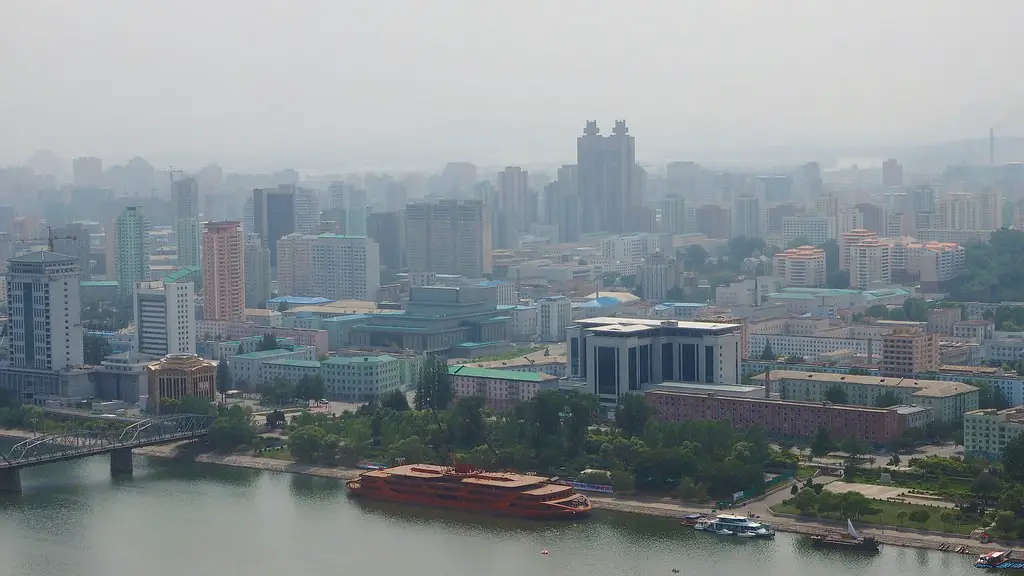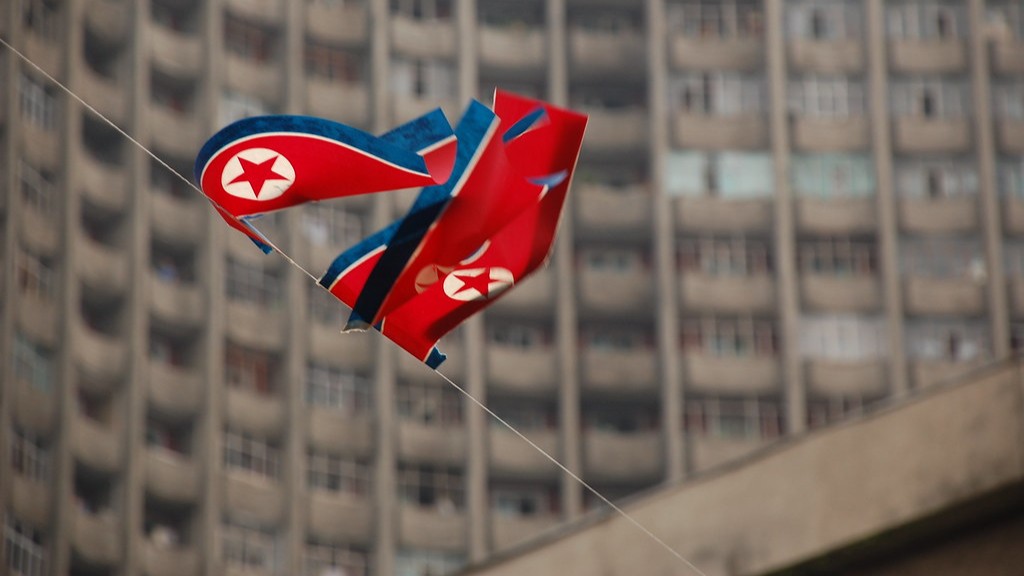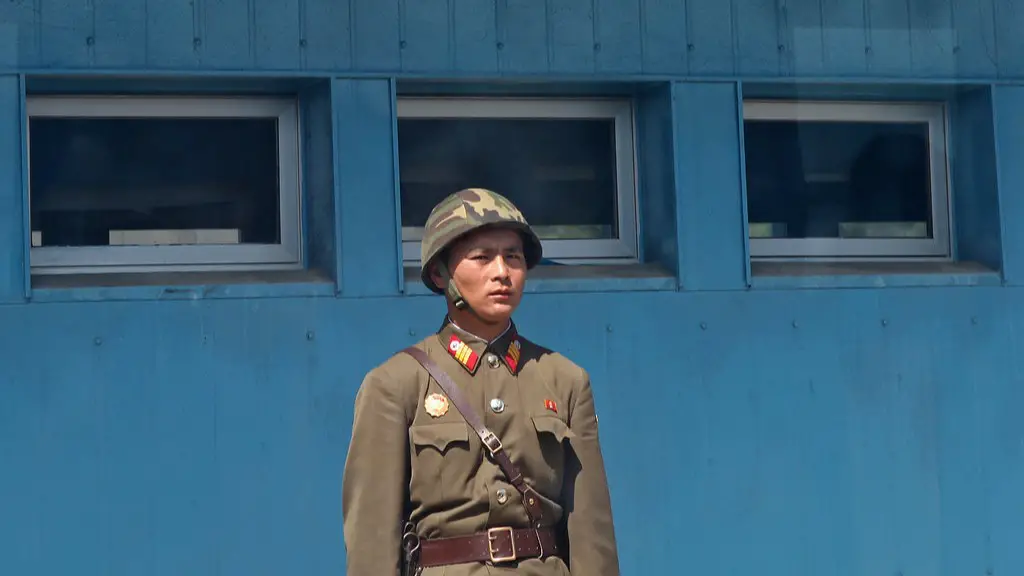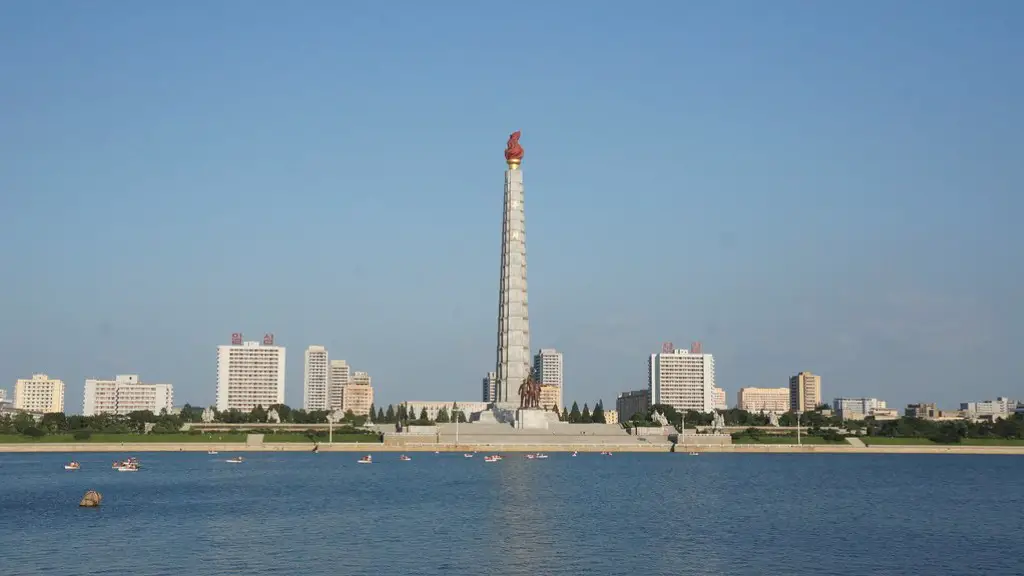South Korea’s Non-Aggression Strategy
The ongoing international situation between South Korea and North Korea has been tense for decades. However, many are curious as to why South Korea has chosen to follow a passive approach in terms of military engagements. Despite the ideological differences and long standing conflicts, Seoul has surprisingly decided to establish a strategy of non-aggression.
In order to understand this decision, it is important to consider the complex regional dynamics at play. North Korea, with its volatile leader and nuclear weapon capabilities, represents a significant threat to the South, both militarily and economically. The possibility of an attack is prevalent due to the lack of communication between the two countries. In this context, the South Korean government has decided to pursue a policy of non-engagement and de-escalation.
South Korea’s stance of non-violence is further supported by the diplomatic efforts of the United Nations. Since the beginning of the crisis, the UN has called for dialogue and mutual understanding. This has helped to reduce the likelihood of a military conflict, as both sides recognize that any sort of counterattack could have serious international implications. South Korea has thus chosen to take a more cautious stance, despite ample justification for aggression.
The preference for a non-aggressive approach can also be attributed to the economic concerns of the South. Any armed engagement with the North would cause tremendous damage to the South Korean economy. Additionally, military action would disrupt trade with other countries, and could even lead to global trade sanctions. These costs would be too great for South Korea to bear and so it has thus adopted a stance of non-aggression.
The recent thaw in relations between North and South Korea has further reinforced South Korea’s non-aggression strategy. Both countries have made progress on the diplomatic front and have initiated conversations on issues such as nuclear weapons and reunification. This progress has bolstered the confidence of South Korea and has made them even less inclined to engage in military action.
South Korea’s strategy of non-aggression towards North Korea is driven by both diplomatic and economic considerations. The South Korean government has taken a more passive stance in order to protect its citizens and to ensure a strong international standing. The recent thaw in relations between the two countries has only reinforced the South’s strategy and should be seen as a positive sign for the future prospects of the region.
Hindrances to Others Wanting to Intervene
International actors have also been reluctant to get involved in the conflict between South and North Korea. This is in part due to the lack of an international consensus on the matter. Without a clear mandate from the United Nations or other major international organizations, it is difficult to justify any intervention. Moreover, there are a number of major powers with different opinions and interests in the region, making it difficult to reach a unanimous decision.
Additionally, there are also domestic concerns for countries looking to intervene militarily. This is particularly true for South Korea, which does not want to see a prolonged conflict between the two states. Simultaneously, both North and South Korea have strong ties to other major global powers, such as the US and China, who have their own vested interests in the dispute. As such, these superseding interests prevent the involvement of other states in the conflict.
The continuing presence of nuclear armaments in North Korea has further complicated the situation. The use of such weapons during an armed conflict would threaten the stability of the entire region. Consequently, any military engagement with the North carries significant risks and could potentially set off a chain reaction of further nuclear proliferation. In this context, intervening in the conflict has thus far been deemed too risky an undertaking.
The complexity of the matter has further supplemented by the presence of numerous smaller countries in the region. For example, South Korea’s neighboring states, such as Japan and Taiwan, have their own concerns and interests in the conflict. As such, any military engagement would need to take into account the various concerns of all actors in the region.
Finally, the lack of unanimity in global opinion has hindered the prospect of a coordinated military intervention in the region. Even if a UN mandate was achieved, the implications of such a move are uncertain as it could result in further destabilization of the region. In this context, it is probably more sensible to pursue diplomatic solutions instead.
Risks of Potential Military Escalations
Although there is a lack of international consensus on the matter, the risks associated with military confrontation are widely agreed upon. On the most basic level, a military engagement between the two states would lead to immense destruction and loss of life. It is estimated that even a limited war could lead to a death toll in the millions.
However, the effects of a potential conflict could go beyond loss of life and include economic and environmental concerns. For example, the relationship between South and North Korea is intertwined with numerous global trade networks, making it difficult to contain any sort of conflict. Moreover, the region is already facing serious environmental challenges such as air pollution, and a prolonged conflict could further compound these problems.
In addition, the presence of North Korea’s nuclear arsenal would further complicate the matter. The regime has already tested nuclear weapons, which highlights its willingness to use such weapons during a military confrontation. This has further deterred prospective interveners, as it would be difficult to contain the detonations of nuclear weapons. Moreover, the radioactive fallout could spread across borders and have devastating consequences, with long lasting environmental ramifications.
Finally, South Korea stands to lose important strategic benefits if it engages militarily with North Korea. In recent years, Seoul has developed strong economic ties with multiple countries, and a prolonged conflict could endanger these benefits. The country has also established itself as a leader on the global stage and a conflict with the North would further detract from its global standing.
How South Korea is Dealing with the Situation
In order to deal with the current stalemate, South Korea has adopted a policy of “strategic patience”. This involves a combination of diplomatic efforts, economic sanctions and the development of alternative forms of engagement.
The diplomatic efforts of the South Korean government are aimed at establishing a dialogue with North Korea and facilitating a peaceful resolution to the dispute. This includes direct contact between representatives of the two states, as well as negotiations through third-party actors. The South has also sought the support of the United Nations to mediate the situation and achieve a peaceful resolution.
In addition, the South has resorted to economic sanctions to put pressure on the North and force it to the negotiating table. This has led to a significant decrease in trade relations between the two states and has caused significant economic hardship in North Korea. Another significant step in this direction has been the establishment of the United Nations Security Council Specialized Committee on North Korea, which has further tightened sanctions and applied additional pressure on Pyongyang.
Finally, South Korea has also invested in cultural and athletic exchanges between the two countries. Events such as the 2018 Winter Olympics have helped to improve the perception and mutual understanding of South and North Korea. Cultural exchange programs have also given people the opportunity to learn more about each other, fostering a stronger bond between ordinary citizens that can hopefully lead to meaningful and lasting peace.
The Role of the US in the Conflict
The US has long been involved in the dispute between South and North Korea and acts as an influential mediator in the conflict. Washington has encouraged dialogue between the two sides, both directly and through its relationship with the United Nations. The US has also imposed economic sanctions on Pyongyang, which has further isolated the regime and raised the stakes for military engagement.
More recently, US President Donald Trump has taken a hard stance against the North by pulling out of the negotiated denuclearization deal in 2018. Although the move has been criticized by some as undermining diplomatic efforts, it has also served to further isolate Pyongyang and impose additional economic pressure.
The US also maintains a significant military presence in the region. The US military regularly conducts joint exercises with South Korea in an effort to signal to the North that it is willing and able to respond to any aggression. In addition, Washington is also a major provider of military aid to the South, which further bolsters its day-to-day military capabilities.
Ultimately, the US has become an increasingly influential figure in the dispute between South and North Korea. Its stance has played a significant role in how the conflict has developed in recent years, and it is likely to remain a major player in any diplomatic resolution.
Impediments to Positive Development
Despite the recent progress made in dialogue between South and North Korea, there are still many impediments to a peaceful resolution of the dispute. For example, the long standing issues between the two countries remain unresolved, and the disagreement on matters such as nuclear weapons and reunification are likely to remain contentious.
Furthermore, the North’s repressive government and its leader Kim Jong-un represent major sources of instability. In particular, the lack of transparency and accountability in Pyongyang has raised concerns about its commitment to a peaceful resolution of the dispute. Additionally, North Korea’s human rights record remains a major concern and has prevented any meaningful dialogue.
Moreover, the presence of nuclear weapons in North Korea is another potential source of catastrophe. The recent inactivity of the North in terms of nuclear testing gives hope that the situation will improve, but its continued possession of nuclear weapons makes it difficult to establish a peaceful long-term resolution.
Finally, international actors such as the US and China are also major sources of hindrance. Both countries have invested a great deal in the region, and their vested interests could potentially lead to further conflict. Moreover, the absence of a clear international consensus on the matter makes progress towards a peaceful resolution difficult.
Conclusion
The dispute between South and North Korea has been a major source of tension for decades. Nevertheless, South Korea has chosen to pursue a path of non-aggression and remains committed to a peaceful resolution of the conflict. This strategy is driven by a number of considerations, including economic and diplomatic ones that have deemed military engagement to be too risky. Although there are still many obstacles in the way, the recent thaw in relations between the two states gives hope that a lasting resolution to the crisis is achievable.





